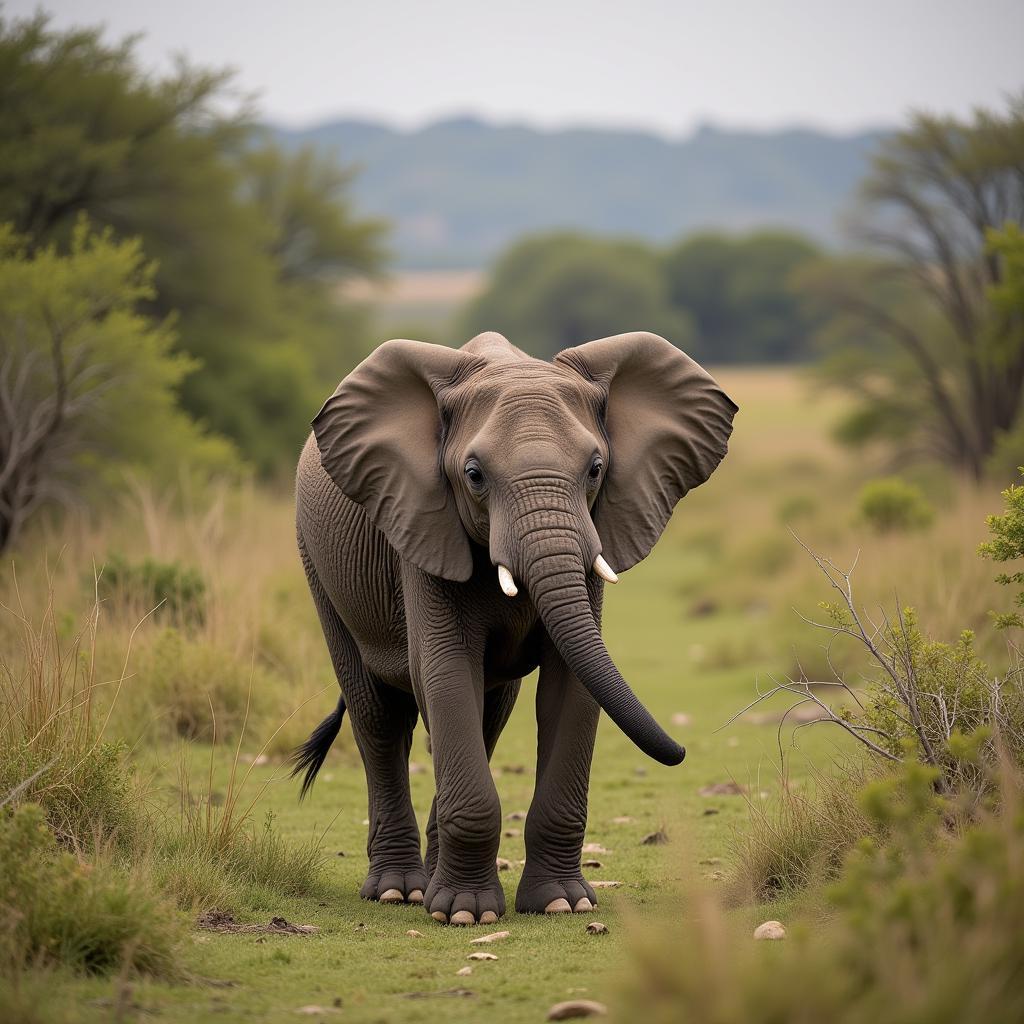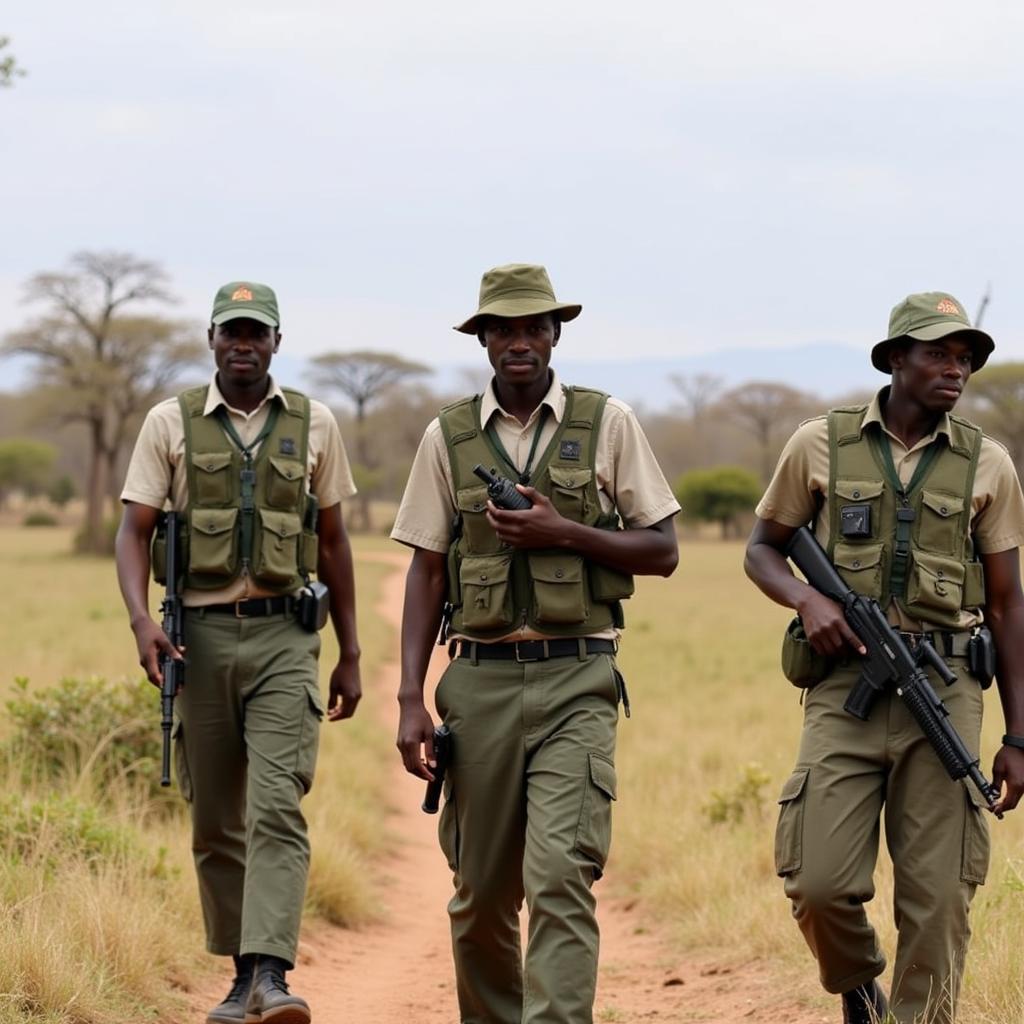African Elephant Poaching Facts: A Stark Reality
African Elephant Poaching Facts paint a grim picture of a species under immense pressure. The illegal killing of elephants for their ivory tusks continues to decimate populations across Africa, threatening the long-term survival of these majestic creatures.
The Devastating Impact of Poaching on African Elephants
Why are African elephants poached? The primary driver is the demand for ivory, particularly in Asian markets. This illegal trade fuels organized crime and corruption, undermining conservation efforts. Poaching not only reduces elephant populations but also disrupts social structures and has cascading effects on the entire ecosystem. The loss of older, experienced elephants, who play crucial roles in leading their herds and passing down knowledge, weakens the resilience of the entire population.
How Many Elephants are Poached Each Year?
Estimates suggest that tens of thousands of African elephants are poached each year. These numbers fluctuate, influenced by factors like ivory prices, law enforcement efforts, and political instability. The sheer scale of the slaughter is alarming and highlights the urgent need for effective interventions.
What are the Consequences of African Elephant Poaching?
The consequences of African elephant poaching extend far beyond the immediate loss of individual animals. It has a ripple effect, impacting ecosystems, local communities, and national economies. The decline of elephant populations disrupts the natural balance of ecosystems, affecting vegetation patterns and the distribution of other species.  Impact of Poaching on Elephant Families: A young elephant calf stands alone, its family likely victims of poaching, demonstrating the devastating emotional and social impact. Moreover, poaching deprives local communities of potential tourism revenue and contributes to insecurity in affected regions.
Impact of Poaching on Elephant Families: A young elephant calf stands alone, its family likely victims of poaching, demonstrating the devastating emotional and social impact. Moreover, poaching deprives local communities of potential tourism revenue and contributes to insecurity in affected regions.
The Role of International Cooperation in Combating Poaching
International cooperation is essential to effectively combat African elephant poaching. This involves sharing intelligence, coordinating law enforcement efforts, and strengthening legal frameworks to prosecute poachers and traffickers. Collaboration between governments, NGOs, and local communities is crucial for creating a united front against this illegal activity. african elephant migration often crosses international borders, making collaboration even more vital.
“The fight against poaching requires a multi-pronged approach, addressing both the supply and demand sides of the ivory trade,” states Dr. Anika Nkosi, a leading wildlife conservationist. “This includes strengthening law enforcement, raising public awareness, and providing alternative livelihoods for communities affected by poaching.”
What Can Be Done to Stop African Elephant Poaching?
Stopping African elephant poaching requires a comprehensive and sustained effort. This includes strengthening anti-poaching patrols, implementing stricter penalties for poachers and traffickers, and reducing demand for ivory through public awareness campaigns. african elephant fact file provides more information about these incredible animals and the threats they face. Supporting sustainable tourism initiatives can provide alternative economic opportunities for local communities and incentivize elephant conservation.
The Importance of Community Involvement
Engaging local communities is paramount in the fight against poaching. By empowering communities to protect their own wildlife and providing them with alternative livelihoods, we can create a more sustainable future for both elephants and people. “Local communities are the eyes and ears on the ground,” adds Dr. Nkosi. “Their involvement is critical for detecting and preventing poaching activities.”
 Community Anti-Poaching Patrol: A group of local rangers patrol a wildlife reserve, highlighting the vital role of community involvement in protecting elephants. african elephant ecology plays a key role in maintaining the balance of their environment. african elephant endangered species highlights the precarious situation these magnificent creatures are facing.
Community Anti-Poaching Patrol: A group of local rangers patrol a wildlife reserve, highlighting the vital role of community involvement in protecting elephants. african elephant ecology plays a key role in maintaining the balance of their environment. african elephant endangered species highlights the precarious situation these magnificent creatures are facing.
Conclusion
African elephant poaching facts reveal a tragic reality. The continued demand for ivory threatens the survival of these iconic animals. However, through concerted international efforts, community involvement, and public awareness campaigns, we can work towards a future where African elephants are safe from this devastating threat. african bush elephant facts provides a deeper understanding of these fascinating creatures and the importance of their conservation. We must act now to protect these magnificent creatures for future generations.
For assistance or more information, please contact us at +255768904061, kaka.mag@gmail.com, or visit our office in Mbarali DC Mawindi, Kangaga, Tanzania. Our customer service team is available 24/7.

